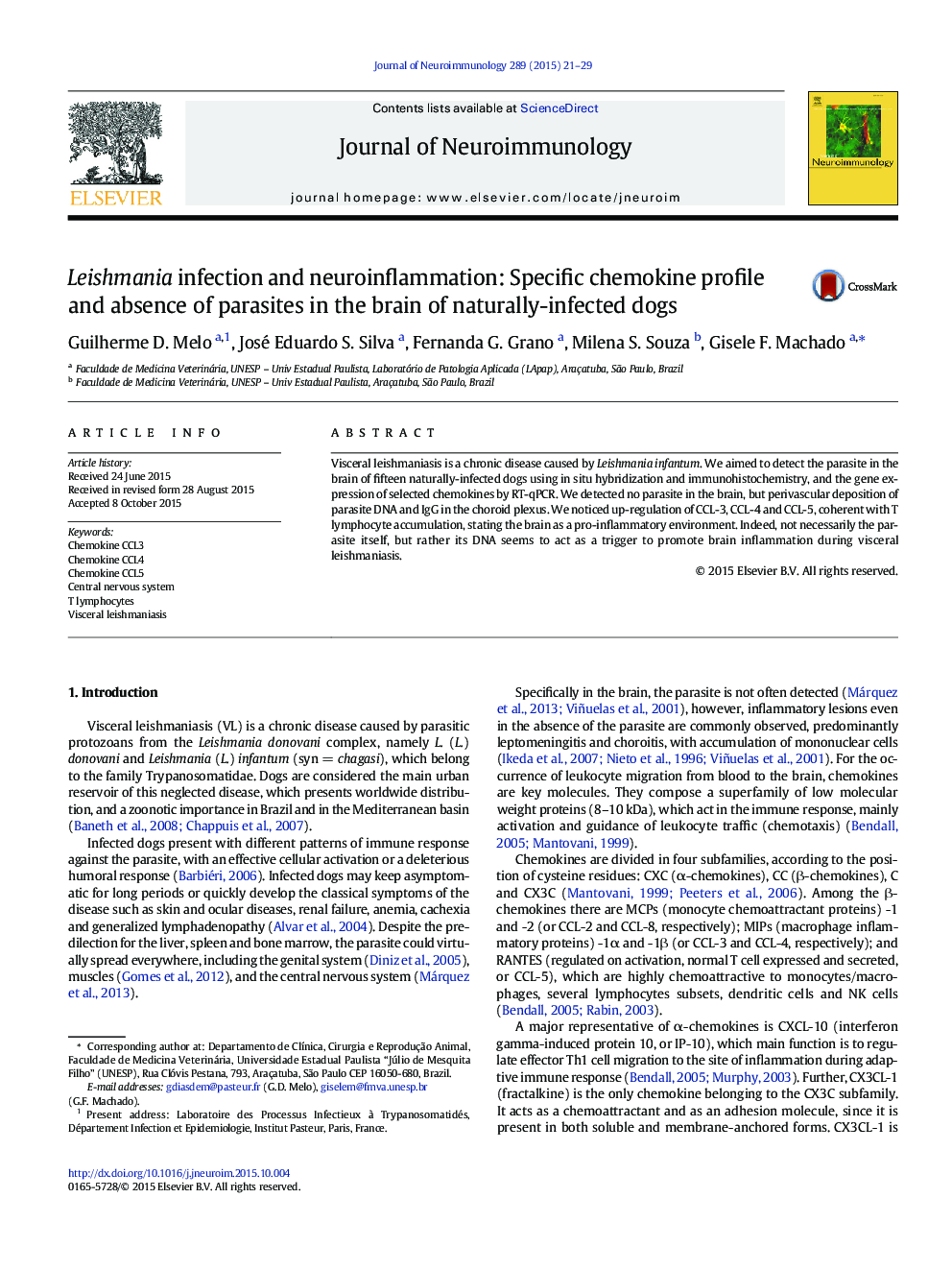| Article ID | Journal | Published Year | Pages | File Type |
|---|---|---|---|---|
| 3063869 | Journal of Neuroimmunology | 2015 | 9 Pages |
•Dogs with visceral leishmaniasis present signs of brain inflammation.•There is perivascular deposition of Leishmania DNA in the choroid plexus.•CCL-3, CCL-4 and CCL-5 are overexpressed in the brain of infected dogs.•The expression of CXCL-10 is up-regulated only in a subpopulation of infected dogs.•The parasite DNA seems to act as a trigger to promote brain inflammation.
Visceral leishmaniasis is a chronic disease caused by Leishmania infantum. We aimed to detect the parasite in the brain of fifteen naturally-infected dogs using in situ hybridization and immunohistochemistry, and the gene expression of selected chemokines by RT-qPCR. We detected no parasite in the brain, but perivascular deposition of parasite DNA and IgG in the choroid plexus. We noticed up-regulation of CCL-3, CCL-4 and CCL-5, coherent with T lymphocyte accumulation, stating the brain as a pro-inflammatory environment. Indeed, not necessarily the parasite itself, but rather its DNA seems to act as a trigger to promote brain inflammation during visceral leishmaniasis.
Graphical abstractFigure optionsDownload full-size imageDownload high-quality image (88 K)Download as PowerPoint slide
